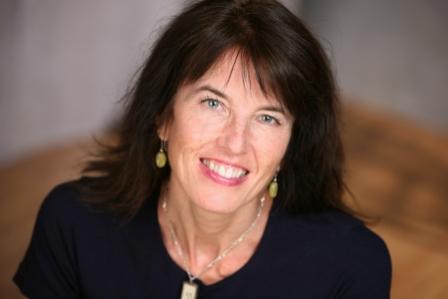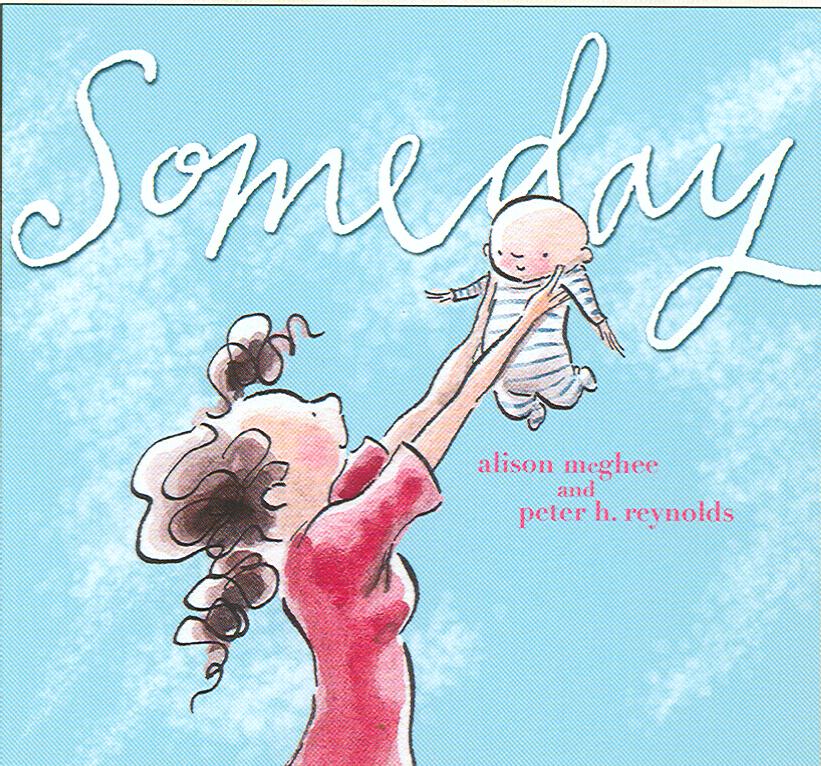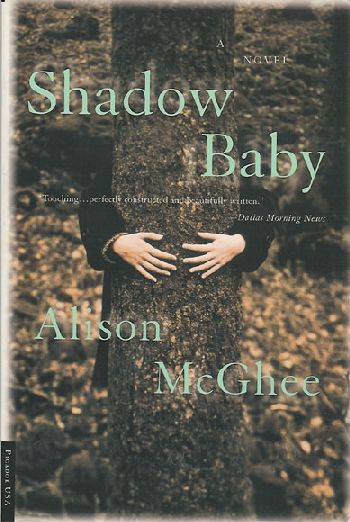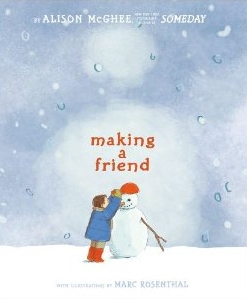The Family Business: Plan B
Pulitzer-nominated, best-selling novelist Alison McGhee (SHADOW BABY, SOMEDAY) offers a personal essay about pursuing your art without a safety net, working in a world with no Plan B.




introductionFor this month’s “Family Business” column, acclaimed writer Alison McGhee reflects on what it means to build a life in art. She’s not talking about pat advice — the easy bromides about daily practice or process. Rather, her subject is about that unmistakable combination of fear and exhilaration that comes from working without a net: what it is to pursue one’s chosen path without reservation or contingency plan, when there is no Plan B to fall back on if it doesn’t work out.
An acquaintance asks if you have any words of wisdom to contribute for a talk she’s giving on the topic of “Building a Writing Life.”
You start to tap out a bunch of little bromides along the lines of a) make a practice of writing regularly, b) look at writing as a process rather than a series of finished projects, c) develop a good critical eye for your own work.
How dull. If you were an aspiring writer you would be, at best, unmoved and, at most, insulted by the boringness of these words of wisdom. You hit ‘delete’ and abandon ship and go for a long walk with your dog. But the frustration with your own words remains. Annie Dillard, in an essay that you’ve memorized because you love it so much (except for that one paragraph you hate and choose to ignore), says, “What could you say to a dying person that would not enrage by its triviality?” You are enraging yourself — not too strong a word — by the triviality of your advice. This seems ridiculous; it’s only a simple talk to aspiring writers on building a writing life, for God’s sake.
But the anger remains.
Now, you’re thinking about a workshop you taught last fall, in which the writers were talking about this very thing: How to become a writer; how to make a life as an artist, whatever that art form — painting, writing, music, acting — might be; the difficulty of making a living, even a small living, as an artist. You listened to them talking. Everything they said was true. There was nothing to disagree with. The conversation shifted to Plan B, the backup plan for when things don’t go the way you want them to.
“Screw Plan B!” one of them said. “It seems to me that if you have a Plan B you’re going to end up following Plan B and be guaranteed failure. Why not go for Plan A and at least know you tried?”
You looked at this writer. He is a person of strong opinions and enormous talent, and behind that talent is a ferocious determination. He was laughing, as he often is, but you knew he was dead serious.
“I never had a Plan B,” you heard yourself say, and you realized only then that it was true. This was a weird thing for you to say, because you don’t much like to talk in class, or anywhere for that matter, about your own writing. But you felt as if little puzzle pieces were all falling into place. Was it possible that you hadn’t realized until that moment that you were a Plan A-only type of person?
Yes. It was possible. You knew that from early on you wanted only to write a book, a beautiful book, but the fact that this was and remains your only goal felt like new information.
In that same moment, sitting there in class listening to your students, you realized that life is easier if you only have a Plan A. It makes prioritizing easy. Whatever you want to be, to do — whether it’s write a beautiful book or paint an astonishing painting — means that the book or the painting will always be the highest priority.
All you want is to write that beautiful book. It’s a dream that’s still being realized — that beautiful book, out there, shimmering in the distance, waiting for you to write it.
First comes the Plan A, then comes everything else. Whatever job you take to support the plan will be secondary to the plan. If you have children, you’ll figure out how to keep writing when you have them. Maybe you’ll get up at 4, maybe you’ll stay up until 4; somehow you’ll figure it out.
Even if you’re not a good writer — and you yourself weren’t — that won’t stop you. You’ll keep at it until you slowly get better. Because what other choice do you have? There’s nothing to fall back on, if you have no Plan B.
“Easy for you to say,” someone once said to you, after you told her you were pretty sure you would be writing even if you never published anything, “because you have published things.”
That kind of remark makes you go instantly quiet. It seems so rude to respond to it, to repeat that no, you’re pretty sure you’d be writing anyway. And the further truth, which is that you never think about the things you’ve published, also seems rude. But it’s the truth. Anything published is behind you, and you only look ahead.
All you want is to write that beautiful book, and it’s still out there. You haven’t done it yet. That book is waiting for you. This — the fact that you have not yet accomplished your goal — also makes life easier. You don’t have to look around and think, now what? You don’t have to try to come up with a new plan, because the first plan is still operational. It’s a dream that’s still being realized.
It’s a dream that might never be realized. This, too, is something that hadn’t occurred to you. You’ve been like a shark, always swimming forward. All this time you thought there was an end goal, didn’t you? That beautiful book — out there, shimmering in the distance, waiting for you to write it. But what if the beautiful book is a mirage?
It comes to you now, finally, that the beautiful book is a mirage.
That this doesn’t bother you must mean something, but you’ll have to think on it for a while.
About the author: Alison McGhee writes for all ages in all forms, from poetry to novels to picture books. Among many books, she wrote the Pulitzer Prize-nominated Shadow Baby, a novel, and the #1 New York Times-bestseller Someday. She’s currently working on two novels simultaneously, one for children and one for adults.
This essay originally appeared on the author’s blog and is republished here with permission.
About THE FAMILY BUSINESS column: In partnership with the Walker Art Center’s Education and Community Programs department, mnartists.org is launching a monthly series of personal essays, interviews and exchanges with and by local artists — “The Family Business.” We hope these dispatches from the intersection of art and real life will offer a window on the lived experience of Minnesota’s working artists, in their own voices, and on the day-by-day juggle of art-making with the rest of their responsibilities: kids & family, day-jobs and other everyday obligations. From grocery shopping to daycare, caring for older relatives to community activism, we aim to offer snapshots of what a life in the arts really looks like, as seen through the eyes of the creative people living it every day.